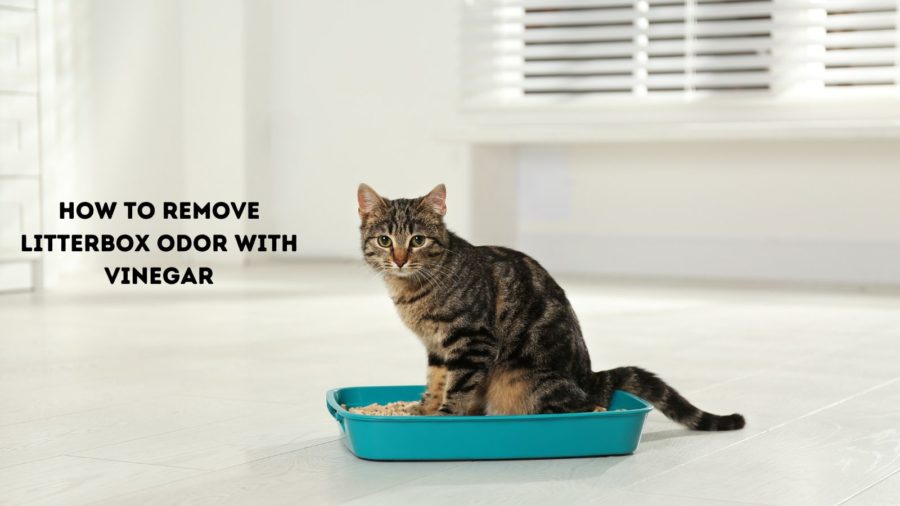Eye-watering vinegar-based smells are disliked by cats—as are other strong-smelling household cleaners, like soap and bleach. Because vinegar is non-toxic, it’s a go-to for use as a cat-repellant and pet-safe cleaner.
Mop with vinegar to deter fleas.
Use vinegar to mop to naturally repel fleas and effectively destroy bacteria, mold, and other germs.
It works great to use about half a cup of white (or apple cider) vinegar in one gallon of water. The smell dissipates quickly.
Clean deposits out of the pet fountain.
Our hard well water, which we use exclusively, leaves mineral deposits on all of the pet bowls and the pet fountain.
Similar to cleaning your coffee maker, you can avoid lime deposits from clogging the pet fountain by rinsing it repeatedly with clean water after running vinegar through it.

We rotate our litterboxes; when we replace one, we take it outside for several days to give it a thorough cleaning and airing before bringing it back inside.
Pour a quarter-inch of vinegar into the litterbox and let it sit overnight for a deep clean; afterward, pour out the vinegar (which works well to naturally kill weeds) and thoroughly wash the litterbox to get rid of any remaining odor.
Because vinegar is acidic, it can be a helpful tool for routine litterbox cleaning. Vinegar can aid in the breakdown and dissolution of any urine or feces that may be in the litterbox when combined with water.
Furthermore, vinegar can assist in eliminating any smells that might be present in the box, improving the experience for both you and your cat. You can use vinegar to regularly clean a litterbox by adding equal parts water and vinegar to a spray bottle, then misting the litterbox with the mixture. After letting the solution sit for a few minutes, thoroughly clean the box with a scrub brush or sponge.
When adding new litter, rinse the box with warm water and let it air dry completely.
What Do Cats Need A Strong Sense of Smell for?
Cats depend on their keen sense of smell for the following reasons, in addition to the fact that it was necessary for their survival as a species prior to domestication:
- To gather information about other cats through scent
- Locate food, water, mates, and potential predators
- Communication purposes
- Navigate their environment
- Detect other cats’ territories
FAQ
Can vinegar keep cats away?
What smell do cats hate the most?
What smell do cats hate to poop on?
What scent is toxic to cats?